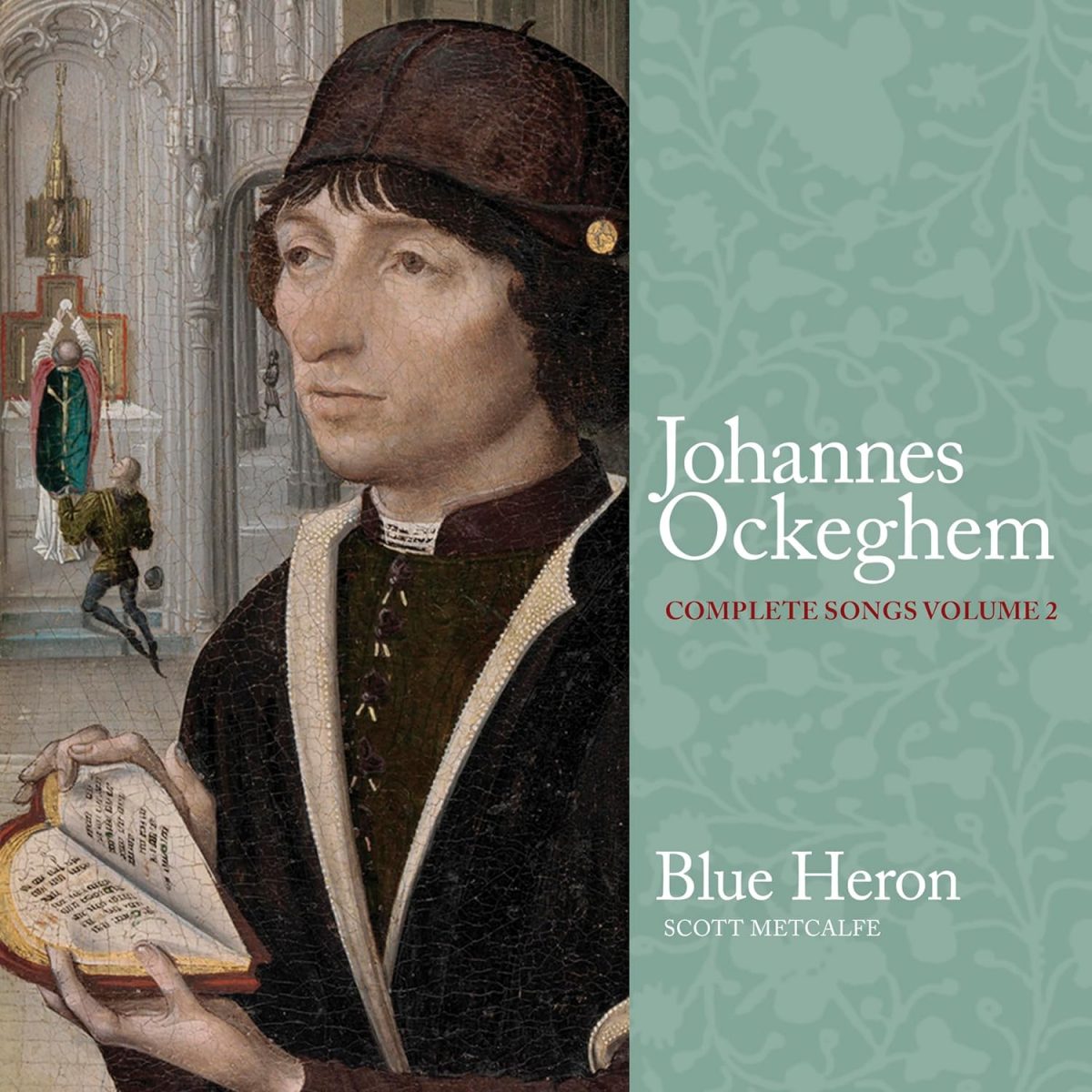Blue Heron, director Scott Metcalfe; Dark Horse Consort
Blue Heron BHCD 1013
70:27
To say that Blue Heron’s second and final disc of Ockeghem’s songs has been awaited eagerly is an understatement. My review of the first volume (BHCD 1010) is dated 21 February 2020, and shortly afterwards (15 October 2020) I reviewed a double album of all Les Chansons released by another American ensemble Cut Circle (Musique en Wallonie MEW 1995). Both of these releases are superb and in their different ways whetted the appetite for Blue Heron’s second excursion into this repertory. Has the wait – four years – been worthwhile?
Back in 1993 I attended the 21st Annual Conference on Medieval and Renaissance Music at Bangor University. I was giving a paper on Byrd – who in those days we still thought had been born in 1543 – and he shared much of the programme with papers about Ockeghem, the quincentenary of whose death was imminent (1997) and the subject of eager preparations. Knowing nothing of the composer except by reputation, I attended these sessions, some of which were illustrated by excerpts from those commercial recordings of his music – on this occasion his masses – then available. To me, compared with how well Byrd was beginning to be performed on disc, these recordings were atrocious (think postwar close harmony groups with crewcuts, clicking fingers and chortling “shoobie-doobie-doobie-doo-WAAAHHH”), and in one lecture I started to guffaw, stifling my contempt when I realised that my fellow attendees were listening without adverse reaction. Before long I was in the bookshop at Lincoln Cathedral, still pursuing Byrd. In lieu of simply making a donation, I impulsively bought a disc of The Clerks’ Group version of his Missa Ecce ancilla Domini, partly by way of contributing to the Cathedral’s funds, and partly remembering Bangor and thinking that there must be more to Ockeghem than the racket that I had heard there.
And so there is. More wonderful recordings of Ockeghem’s masses by Edward Wickham’s excellent ensemble have been followed by, amongst others, two recordings of his complete secular songs which I mentioned above, made by a couple of outstanding American vocal groups with not a crewcut in sight and no clicking of fingers. Suffice to say this second disc by Blue Heron continues the good work of the first. The quality of Ockeghem’s songs is such that they deserve to be performed and recorded by the best ensembles after the indignities his masses suffered on disc during the latter decades of the previous century.
Unlike Cut Circle, Blue Heron employ instruments on some tracks, more so on this second disc than on their first. This is always done sensitively, and the reasons for doing so are given clearly in the accompanying booklet. For instance, Cut Circle perform La despourveue as a vocal trio whereas Blue Heron give it as a solo song accompanied by two stringed instruments, a fourth higher, so that the soprano Sophie Michaux (where do these amazing singers keep coming from?) does not have to descend so far into her mezzo range as did the differently impressive Sonja DuToit Tengblad. And on Ung aultre l’a the “intriguing downward octave scale in the [sung] bass part”, to which I referred in my review of Cut Circle, is played sweepingly on the harp. Throughout this recording, Blue Heron sing with the ideal balance of intensity and engagement – an engagement with the songs themselves and also an engagement with the listener: in other words, this engagement not only extends from the musicians to the music, but also reaches out and embraces the listener – they penetrate the meanings of the songs but also project these meanings outward to their audience. This is expressed as well as anywhere in Baisies moi in which the three singers achieve an ideal balance of intimacy and animation.
Three of the works on this disc are not by Ockeghem himself. The Dark Horse Consort, a quartet of brass instruments, plays an anonymous arrangement of the almost heartbreaking Je n’ay deuil of which the singers perform the four-part version on the preceding track. Of the other two songs, one is by Binchois and the other is by the Spaniard Juan Cornago, but their links to Ockeghem and his music are explained in the booklet, a most helpful and illuminating document written by director Scott Metcalfe and musicologist Sean Gallagher. Scott himself participates on the harp and fiddle and, as on the first disc, is joined by Laura Jeppesen also playing the fiddle. Cornago’s lovely song for three voices Qu’es mi vida is the penultimate track, and the disc, indeed the project, is brought to a close by Ockeghem’s four-part transformation, given here by Sophie Michaux and three instruments: the fiddle played by Scott plus a doucaine and – as a nod to the song’s Spanish provenance – a vihuela de arco. It is difficult to imagine anything more beautiful.
Richard Turbet
